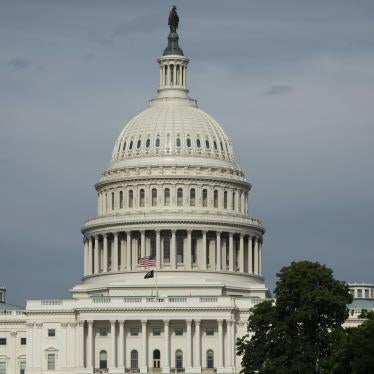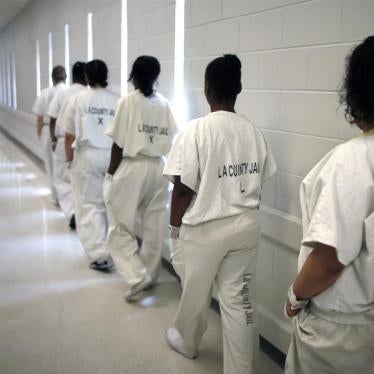Back in 2008, just minutes after President George W. Bush signed amendments to the Foreign Intelligence Surveillance Act into law, Human Rights Watch and other human rights, media, and legal groups brought a constitutional challenge to the sweeping powers the new law gave the US government to monitor the international communications of people in the US. The Supreme Court ultimately dismissed Clapper v. Amnesty International because we couldn’t show with certainty our communications had been secretly monitored.
Then came Edward Snowden.
His revelations showed that the US government was routinely collecting vast amounts of email, web-browsing, and search-engine data by tapping into the Internet’s “backbone” of cables and switches as data goes in and out of the US, in a program called “Upstream.”
Of course, this is a massive invasion of the privacy of millions of Internet users, but that doesn’t begin to capture the harm. When Human Rights Watch can’t assure the privacy of the people with whom we work to expose and halt human rights abuses, we can’t protect their security either. Lives are in the balance, not to mention freedom of information, association, and speech.
Activists in Ethiopia, defense attorneys in France, and officials working in Indonesia won’t call or email us sensitive information about ongoing rights violations because they rightly fear surveillance. We have to get the facts face-to-face or not at all, and either way, that’s costly. People know the domestic government may well have an intelligence partnership with the US, and any leak of US-monitored communications may result in arbitrary arrest, prosecution, assault, or worse.
Last year, we documented the pall that surveillance has thrown over journalists and lawyers in the US, who now must go to extreme lengths to protect their confidential communications, or just forgo the reporting and defense strategies that keep our society informed, fair, and accountable.
This is a terrible price for a democracy to pay. And this time, as we join with other plaintiffs in a new lawsuit, brought by the American Civil Liberties Union (ACLU), we hope the courts will not fear to act where Congress and the executive have failed, and declare that mass surveillance, without target or suspicion, is flat-out contrary to our most basic rights.








